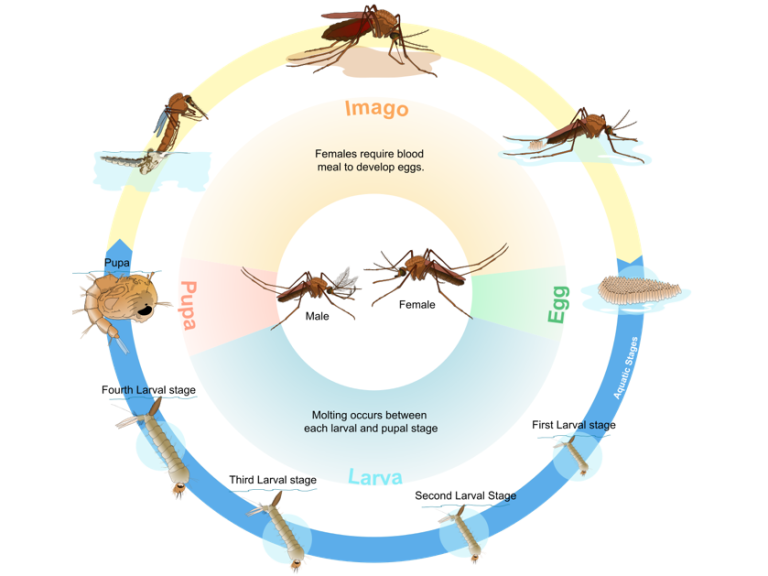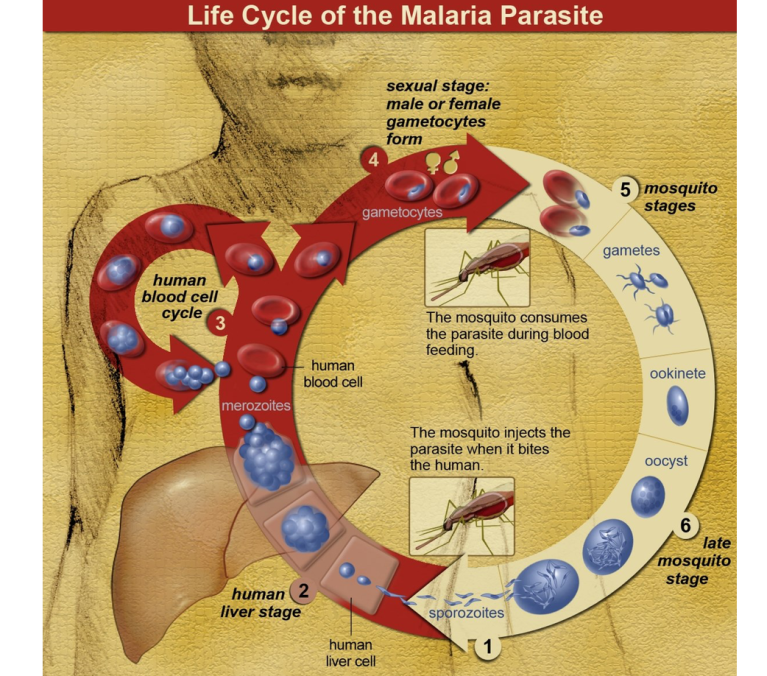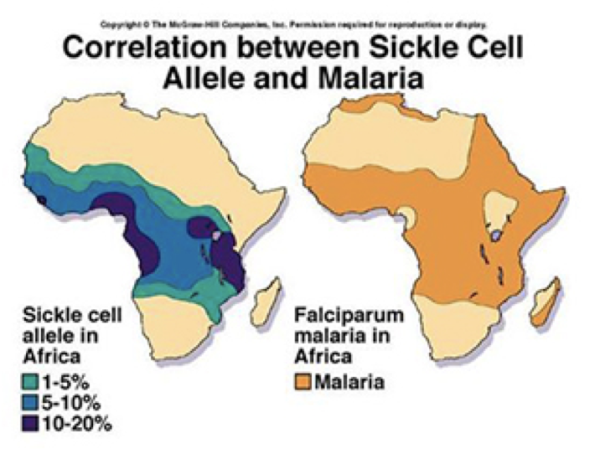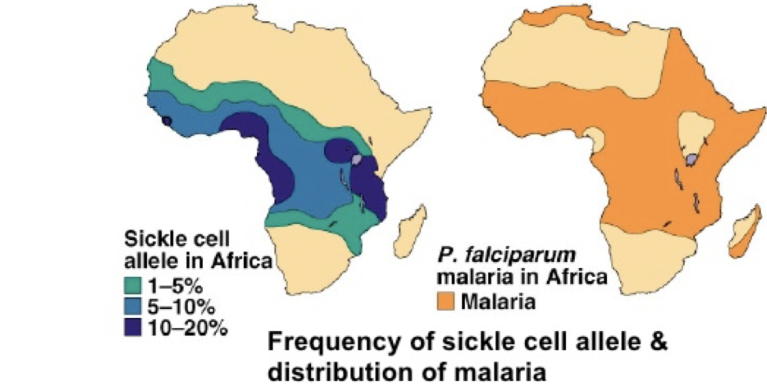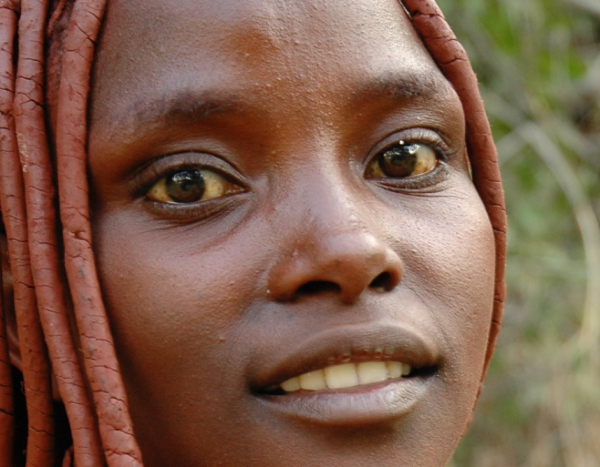The trigger for this babble was the X °th time having someone asking me before taking a journey to the tropics, “please how do you personally deal with malaria prevention on your Africa travels since all these years?” And of course Jeroen Schippers challenging me about Plasmodium and hippo’s…a long story, that does not really matter right now…
Max Girardin
This person wanting to go to the tropics for fun and adventure or just relaxing probably got the fright of his life when he saw, as they usually do, when they see the possible side effects of the so called malaria prevention medication, or even worse if they visit any “alternative health awareness forum” on that topic. And of course “the mosquito song” of the Doors was another inspiration…
And as someone said lately on Facebook, I think it was Gary Lutz who said: “Jim Morrison was right … people are strange”
I am sadly enough an involuntary experience expert since I contracted Malaria on the Congolese high veld back in 1970, at the age of nine, during my very first rainy season there, although we were all taking the bitter “nivaquin” or “camoquin” pills religiously. (Don’t remember which we had first and which came later, they were all bitter as hell and a dreaded disgusting moment every day again.)
The local tropical medic in the Hospital in the town of Lubumbashi, said to my mother, when she brought me into the hospital with a spike of 43° fever, that it looked bad and that I’d be lucky if I ever reach the age of 25, so she’d better get used to the idea.
A nice demonstration of Medical hypersensitivity and empathy or just another era? We had lead in the paint, drove our bikes without helmet and played on the street or in the bush far away from any parental supervision in the wild, no cell phones or so called super healthy food, we went alone on foot to school and still had corporeal punishments, which did not stop us from being little idiots, we did not carry watches it was our stomach and the sun that where our clocks…the good old times hey?
In the meantime I am 58 and did not have any other malaria attacks or rushes since the age of 22, the plasmodium got tired of me or my immune system learned to deal with the little sneaky bastards maybe throwing in peace talks and a cessation of hostilities?
Although I spend a lot of time in Tropical equatorial Africa until 1982 and back again in tropical and subtropical Africa regularly since 1995, and don’t take or haven’t taken any of the bitter malaria prevention pills since my tender youth, when malaria came in uninvited and overstayed drearily its uninvited welcome…
When down in Africa, since the nineties, I mostly camp which means living, cooking, eating and then chat away by the campfire, all outdoors, even sleeping isn’t always in a tent, because as often, as from a security point of view is possible, I love sleeping under the scintillating dark African starry night and its milky way not too far from the campfire. Especially love the Southern cross and her twins for the north South axis and the Milky way East West axis, it is soothing and relaxing sleeping under this free Southern hemisphere compass that orientates us every night…
A painful sidestep which I just remembered…could only happen to me bloody open book and blabbermouth!!! I had in my little village in Belgium two elderly people who came into my practice for headaches or sore backs; anyway my practice and the waiting room looks like a colonial museum or naturalist cabinet of the 1900’s. So they ask me about Africa, if I have some experience with that continent? Stupid and dangerous question because of course I blabber away like a rocket…and at one point…(I was just back from South Africa) and tell them of something I just heard over there: a Belgian rucksack tourist thought it smart to sleep without a tent at a place where everybody else knows that hyena’s roam around at night and where stupid unconscious tourists have fed them from their barbecue’s in order to make nice close up pictures…bad place to sleep without tent because the fire does not frighten or keep them at distance anymore - on the contrary it means food for them now, they are even attracted by it, and that silly tourist got his face half bitten off, one bite done. Senseless tourist! The old people turn a whiter shade of pale immediately…it was their son and he is disfigured for life. What were the odds? I could have punched myself in the face, my big mouth, why don’t you shut up, stupid blabbermouth????
Anyway back to our potato…
After sketching this general setting, the parasitic plasmodium that induces malaria has changed a lot since the 1970’s, so on that front I am as much ‘a clean slate’ as anyone else, I could catch any of the new quinine resistant variants as well as any other, in theory. But either my behaviour saves my bacon, or I have been that much exposed that some resistance kicked in or I am the luckiest fellow around, who will tell? And not ready to get probed to find out…
But let us first look at some general data so as we have something to reason from.
Wikipedia behaving like a complex adaptive system is actually a trustworthy and relatively good source for some general information, so let’s make grateful use of it. (Yes I am lazy in my moments, I am aware of it) So what does Misses WIKI says:
‘Malaria is a mosquito-borne infectious disease that affects humans and other animals.[2] Malaria causes symptoms that typically include fever, tiredness, vomiting, and headaches.[1] In severe cases it can cause yellow skin, seizures, coma, or death.[1] Symptoms usually begin ten to fifteen days after being bitten by an infected mosquito.[2] If not properly treated, people may have recurrences of the disease months later.[2] In those who have recently survived an infection, reinfection usually causes milder symptoms.[1] This partial resistance disappears over months to years if the person has no continuing exposure to malaria.[1]
It is caused by single-celled microorganisms of the Plasmodium group.[2] The disease is most commonly spread by an infected female Anopheles mosquito.[2] The mosquito bite introduces the parasites from the mosquito's saliva into a person's blood.[2] The parasites travel to the liver where they mature and reproduce.[1] Five species of Plasmodium can infect and be spread by humans.[1]Most deaths are caused by P. falciparum because P. vivax, P. ovale, and P. malariae generally cause a milder form of malaria.[1][2] The species P. knowlesi rarely causes disease in humans.[2] Malaria is typically diagnosed by the microscopic examination of blood using blood films, or with antigen-basedrapid diagnostic tests.[1] ‘
Now let’s have an evolutionary look and reason with system and environment in space and time…
Mosquito’s were long present on this planet before the dawn of Homo Sapiens some 300.000 to 250.000 years ago (momentary best scientific guess), as anyone knows who has read Michael Crichton’s “Jurassic park” book or saw the first movie with the same title. The female mosquito with the dinosaur blood in her belly, embedded in the ember stone, was for sure the most underrated ultimate hero of the book as well as the movie, without her the story wouldn’t have had a go.
So the little bloodsuckers were part of our environment since the beginning (earlier than we), the dawn of Homo Sapiens and as we all seem to come out of Africa, we (most of us) are all in the origin African refugees fleeing the tropics. Anyway the mosquito’s reproduction cycle is directly bound to water, still standing water (the blue hemi-cycle), and the females suck mammal blood (yellow hemi-cycle) because they need the rich protein content of the blood for the development of their eggs.
Scientific mosquito research demonstrated several interesting and useful facts:
- In average a mosquito stays in an area of about 250 meters of diameter of his place of birth. (puddle or pool)
- Mosquito’s fly badly and very imprecisely in windy conditions (they crash instead of flying)
- They like warm and calm tropical and subtropical conditions (Even if these are relatively short periods like in Scandinavia or Canada, and yes there are several species of mosquito’s)
- They are mostly attracted by the CO2 we (mammals) exhale, the body-flora smell and -temperature.
- They do not carry the malaria plasmodium since birth but get themselves infected by it when probing a mammal for blood that is itself already infected, as with West Nile virus and other tropical unpleasednesses.
- Mosquito’s are mostly active from dusk till dawn, in plain daylight with a hot sun they tend to hide in dark or shady cooler places. (They are prey too and have not got a good thermoregulation system, you see?)
In the north of South Africa there is a funny story, when the Boer Voortrekkers during ‘die Groote Trek’ (Mostly the group of Hendrik Potgieter and the one from Louis Trichardt) arrived in what is today the Limpopo province above the tropic of Capricorn, they started to see a type of trees with a yellow bark they did not know, it looked like an acacia, which it is, but different from any they found in their southern states like the Oranje Vrystaat or Transvaal, and as by strange coincidence, they started having serious fevers (malaria) shortly after being in the presence of the trees, so they called these Koorsboom or Fever tree. Very well known by exquisite Tonic and Gin &Tonic lovers.
Today we know the tree has nothing to do with it, except that it shares the same environment as the riverine forests and its mosquito’s above the Tropic of Capricorn in the Lowveld; but it is a funny anecdote isn’t it? It demonstrates something I really love in the Afrikaanders mentality, they are incredibly observant of their environment (at least those that still spend time in the bush) and their language is easy and right down to earth, so descriptive that it baffles me each time again… (for example “the subway” is in Afrikaans “de moltrein” or “mole train” or a giraffe is a “kameelperd” a “camel horse”…LOL
Anyway…
Malaria being endemic to the central part of Africa very probably long before we appeared on the scene, influenced some of our brothers who stayed in that environment more than others who left the region, within our species; and that influence expanded regionally and successfully by natural selection…
The people suffering less and usually not dying from malaria had more chance in those area’s to have more offspring and raising them but I am running too fast here, sorry for that… (and as usual: it was originally dependent on the very specific environment, but it got mixed up with the slave trade much later exporting the chained Bantu people against their wishes or consent to other parts of the world)
Effectively Homo Sapiens from that part of the world had a gene (allele) change that lead to something which is today called “sickle cell anaemia” in pathology. But seen in a broader perspective in its specific environment it is a blessing for our species in those regions not a bloody disease….The heterozygote carriers of it actually live quite well with the malaria infection as they destroy a serious number of the parasites within their systems. Even if they get a ‘malaria attack’ it is generally with mild fevers, and the chance that they die from Malaria is extremely low. So this evolutionary advantage not only maintained itself but spread through the populations, and can be seen as a positive mutation for that specific environment. As is displayed on these two power point slides
Why has sickle cell disease not been eradicated?
Heterozygote Advantage
- In tropical Africa, where malaria is common:
- homozygous dominant (normal) die of malaria: HbHb
- homozygous recessive die of sickle cell anemia: HsHs
- heterozygote carriers are relatively free of both: HbHs
- survive more, more common in population
Hypothesis: In malaria-infected cells, the O2 level is lowered enough to cause sickling which kills the cell & destroys the parasite.
Today in Southern Africa the local people, as well the Bantu people who arrived there in the 1800’s as the descendants of the Pommies, as from the Trekking Boers, usually don’t take malaria prevention because if they get it, the symptoms are easily recognized by any and can be treated accordingly.
If they would take the malaria prevention, as tourists do very often, the symptoms usually mimic flu and are as such often missed with sometimes dramatic consequences for the individual. And yes the malaria prevention medication and drugs are in the utter utter best case really up to a maximum of 90% prevention, you still have a 10 % chance to still catch the plasmodia, as I discovered to my expense.
As such it is not a real protection but playing dice with the law of probabilities, putting some more points in the balance…Rigging the game so to speak.
What the malaria prevention medication certainly does for a 100% is depending on the type: being toxic for liver, kidneys and damage and even destroys a part of the mucus membrane… Moreover do you think tropical Africa is the best geographical place to knock out or damage your first defence barrier the mucus membrane and then the third being liver and kidneys???? Think again…
It is probably the worst place (band wide) over the globe to lower your natural defences?
Another good reason why the locals don’t take them, imagine if they should take them practically since birth…probably they would not make old bones…
A lot of the Himba people live in Kaokofeld or Kunene, an arid and at some places desert region with little or no mosquito’s, but many also live close to the Kunene river on both sides in Angola and Namibia and its riverine bush or forest where the mosquito’s are abundant, there malaria hits hard while plasmodium party in orgies of human blood and organs and still standing warm water.
Look at the white of the eyes of this young and otherwise healthy Himba mother near the Kunene River, that is visibly what malaria plasmodia do but also an indication for what we can do…
See how yellow her eyes are?
That is what the plasmodium or malaria does, but that is also what the malaria prevention medication does if you take it for longer periods of time: thus dilemma, how to cope with that one?
My answer is as simple as it is complex, thus read it and reason by yourselves:
First determine how much awareness of your environment you have because this changes the game completely for your personal situation:
- If you are not a very aware person, go for the prevention medication, it is a no-brainer just don’t forget to take your pill while still heeding my precautionary tricks.
- If you have not a very good mucus membrane condition and a weak liver or biliary system, then prepare them long time before the trip because the meds are probably going to hit your systems hard, and deliver next to a …x% of protection, serious other problems, or put you at hazard for leaky gut like problems which you don’t want there trust me on that one...
- If you are a pretty aware person then: - If you are very aware of your environment, apply the precautionary tricks religiously.
- adapt to the circumstances: stay as little as possible in populated area’s,
- stay far from still standing water and populated area’s, and as soon as
- the burning heath of the sun tempers usually around 1600h (depending on the place and season) switch over to long sleeves and long trousers and a big cotton shawl and spray some DEET mosquito prevention on the shawl exterior around your neck, and on your trousers legs endings or on the socks, the same for the sleeve ends and eventually hands. Repeat this several times about every 2 to 3 hours. (They all say that their products last for 8 hours…but they don’t except for the military grade ones and that is really with high DEET concentrations that you don’t get in normal shops)
What I do extra, but before applying this you should test it out if it works for you, in a malaria free zone preferably.
I take mother tincture or “urtinktur” as they call it in german (70% alcohol solution) of the plant LEDUM PALUSTRE, about 15 drops in some water twice or three times a day, the whole time, starting a few days upfront of my journey and the mosquitos seem to forget about me? I tested this out for the first time in 1995 in the Zambezi region infested with the Tsetse flies that can give you “the sleeping disease” and even they forgot about me, my friend Rik who slept next to me on that journey was bitten about 27 times by Tsetse flies if I remember right, and after a 100 we stopped counting his mosquito bites. Maybe he was just a good biting insect diversion? Nevertheless as a ‘good just graduated’ M.D. he laughed with my plant stuff, asking if I did not have a plant against all diseases mockingly...
3. As mostly I like to camp preferably, we sit outside most of the time, we also burn these mosquito coils under the table and under our chairs before sundown until we go to bed… don’t know if they really work or if it is psychological but I apply this since years and didn’t get re-infected? The second good reason to put a big table cloth on our camping tables, next to the aesthetics of the camp, the cloth maintains a different environment under the table as the fumes of the coils stay hanging there. The coils thing I learned from my bush brother Dr.Leslie Pleass.
4. I stay as much as possible away from other people, really in the bush away from rivers or lakes and local villages, otherwise adapt to the specific conditions consequently.
To be fully honest I must say, that I spend most of the time in the bush mostly on the high veld where the risk is less anyway, or in very arid or desert zones like Botswana, Kalahari, Kaokoveld or Kunene, Damaraland in Namibia preferably. ( The Okavango delta, and close to the rivers are the exceptions) Moreover trying to go there mostly in the dry season or at the begin of the rainy season, never in full rainy season, or their high summer where the mosquitos are abundant. Despite that we spend time on the Low veld too especially if we go to the Kruger Park.
But I have had already many patients in treatment with the consequences of a lovely trip to India, Thailand, South America, the Caribbean or Africa and come back with their gastro-intestinal system as a mess because of the malaria prevention pills and then all kind of parasitic or other sur-infections and parasitic problems because their mucus membrane was battered heavily by the malaria prevention… in my experience but this is very subjective, the worst cases where those who took Malarone and the second worse Lariam and Paludrine, because I find extreme mucus membrane and liver problems (even some with suddenly declared psychiatric problems after usage of Lariam), the quinine and derivates gives mostly liver and kidney problems from my osteopathic point of view.
Which means a dietary sensible approach targeted on the mucus membrane and its Malt and Galt system, and a liver-biliary system adapted hygiene.
The most important being eat little and very early in the evening, go to sleep early and make the gallbladder spit as hell, as much as possible…all hygiene and dietary stuff.
So what about the stylish mosquito nets impregnated with DEET? They do function if…and the if makes a big difference: if you re-impregnate them regularly, buy them large enough, and if the bed is large enough so that they never touch you during your sleep otherwise the little suckers probe you and if your tasty enough they suck you through the net where you have contact. This means a large bed and you have to tuck the net tensed under your mattress as to make a tensed net or tent or it does no more effect than aesthetic and sexy tropical decoration pleasant for the eye.
It is not very ecologic nor sexy but the good old insecticide spray in the closets, under the bed, in the bedroom and every dark or shady corner does marvels during the day and then keep the doors closed and only ventilate with a mosquito-net protected windows. Or stay away from the tropics, although with the warming up conditions Malaria is moving up North. Not the first time that happens, if I remember right in Medieval times and around the 1600’s malaria was endemic as far North as in the UK, they called it “marsh or swamp fevers” back then.
If you have a fan, put it on maximum speed and direct it towards the side of your bed where you step in (because that side will be tucked less well probably), if it is a ceiling fan put it on maximum speed that messes up their flying capacities…(he he he with a grim grin). If I go where there is electricity at hand, like in the Kruger Park for instance, I carry a small strong fan when camping. (Another Leslie trick)
In the morning when it is not bloody hot yet with the sun burning on your skin, keep the dressing code from late afternoon or evening, only start to uncover when the heath and full burning sun is there.
There is by the way a fantastic saying in Africa that goes: “You think you are too small or too insignificant to change something in the world? Spend a night with one mosquito in your room and than think again. “ (Translated and paraphrased)
So that is about it for my prevention tricks, I have buddies that take phenomenal doses of vitamin B so that they stink the stuff emanating in their sweat but I don’t know if it works? I know they stink like hell in the car that I know for sure. Even in camp you must see that they stay downwind.
Now as for treatment, if you really get malaria, take the pills, some forms of malaria kill even from the first attack! (In Africa they call it the dreaded brain malaria) But Osteopathically it is important to help these guy’s livers, biliary system, kidney’s and most important mucus membranes, and keep them hydrated. Keep the fluids running and don’t let the temperature (fever) do damage to their nervous system. See my article on fever in general https://www.linkedin.com/pulse/inflammation-osteopathically-max-girardin/ and the one about wash out and at the followup on the pterygoids, as they might come in handy….
The most important is not to get their brains overheating because that damage is usually absolute, the neck with its big vessels is a perfect air-conditioning just put wet cotton cloths around it to cool down the pipes leading to the sensitive woos called brain…eventually even a wet cotton hat that is what we do when the environmental temperatures go above the 40’ies and it works like a charm.
People tend to forget the role of a good (Venous) circulation of liver and central nervous system and frequent complete discharges of the biliary system in fevers…heed the biliary system and its commands from the duodenum and spine…another interesting read if you don’t get me…
As I said already in several articles these are not really ‘stand alone’ articles they are zooms in here and there in the Form of our bodies in health and in stress, no more no less, all articles together really form a whole that demonstrates in different dimensions the way I understand Drew’s writings…today.
Cheers from the mountain…now I go and sit outside because the Pleiades are passing and they always offer incredible sights of shooting stars and the sky is clear tonight … perfect conditions … Cheers



